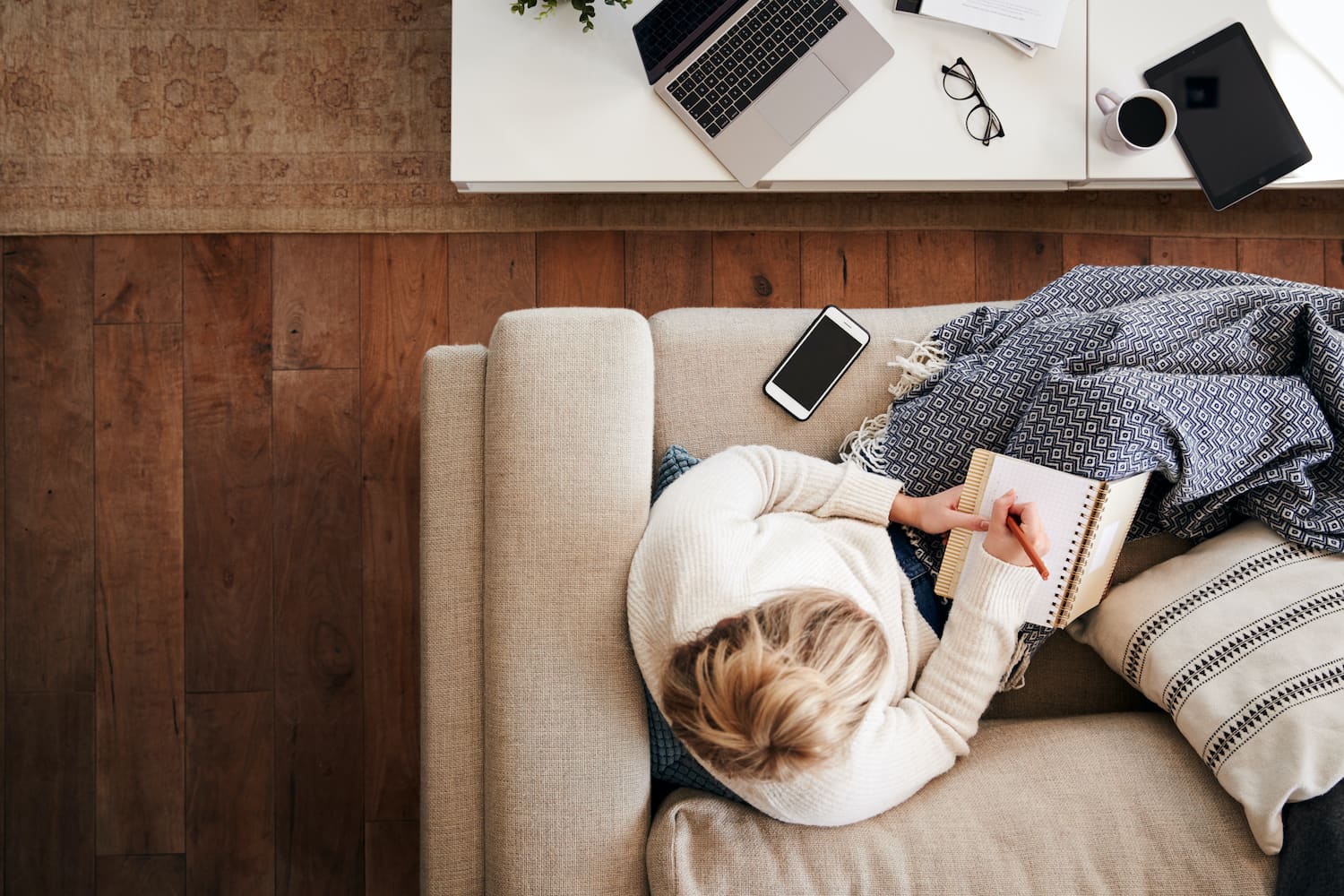Feeling tired and groggy? I’m with you
Lockdown living combined with darker, longer nights can be exhausting, can’t it? As we face the prospect of spending days inside, staring at screens under artificial light, it’s not just our emotions that are on a rollercoaster ride. Our body clocks are being affected too.
Our natural circadian rhythm – the internal clock that regulates our sleep/wake cycle – has been hit hard by the changes to our routines this year. And now, with the addition of dark winter nights, there’s a risk of even greater disruption to our internal timekeeping mechanisms.
Being told that you’re a ‘creature of habit’ is often thought of as a negative thing. But, the reality is, as humans, we’re all creatures of habit. Our biological rhythms thrive on routine. Our brain responds to daylight exposure and every organ of the body helps to maintain our daily cycles of activity – which all are set by the rising and setting of the sun.
Now we’re facing an epidemic of exhaustion because we’re living against our body clocks. According to a recent study from King’s College London and Ipsos, more than half of Brits have faced sleep struggles since the start of the first national lockdown.
If your sleep is out of routine, then it’s to be expected that other routines, such as eating and exercising, will also shift. And, because we’ve been living in this weird new normal for a while, you might be forming bad habits that are starting to stick.
But, it is possible to change that. Here are a few tips to help you re-establish a routine and stay well this winter.
Get outside first thing
Spending time outdoors is incredibly important for our emotional health, just as it is for our physical health. So, try to get outside in the morning – even on a cloudy day. The light outside is very powerful for training our body clock to track day and night.
“Exposing your face and eyes to morning sunlight will enable your body to increase its production of serotonin,” says nutritional therapist Nuala Hume. “Serotonin is a neurotransmitter that regulates everything from mood to sleep.”
Why not challenge yourself to spend 30 minutes outside each day? Exercising first thing in the morning can help to set you up for the day. Or, if you prefer to get fresh air at lunchtime, this can help to break your day up and give you something to look forward to.

Punctuate your day and week
Whatever your situation – whether you’re working from home, isolating, or something else – it can help to create a timetable to keep you occupied. Particularly if you’re working from home, this can help to ensure that your day doesn’t just blend into your evening, as this can lead to burnout or feeling like your work/life balance is out of whack.
If you can, do something regularly that connects you to the outside world and/or to a person outside of your household. That might be going for a walk, maybe a socially distanced one with a neighbour, or perhaps a weekly video call with a group of friends.
It might help to create some sense of routine in your day by keeping some activities for the daytime and then having others to occupy you in the evenings. Or, why not create a weekly menu? Knowing what you’ll be eating each day can help to give your week some variety and keep you motivated to make nutritious meals - which will also help to keep you energised.
For a whole host of recipe inspiration, from deep sleep dishes to good mood food, visit Nutritionist Resource.
Develop a wind-down routine
Developing and maintaining a daily routine can help with this, but we should be placing extra importance on our bedtime routine. If what you’re doing right now isn’t helping you to get a good night’s sleep, try something new. Pick up a book, get yourself an aromatherapy pillow spray or try meditation.
Here, clinical hypnotherapist Fiona Lamb shares the benefits of meditation and taking time out for yourself.
Making your bedroom dark and cool is also thought to help.
“At night you want to allow your melatonin to work effectively (which is needed for deep restorative sleep) and it does this in a dark atmosphere,” explains Nuala. “Make sure curtains are fully closed and you can also get blackout liners to make sure there is no light peeking through.”
Then, as soon as you wake up, open the curtains to let all the natural light flood in. This helps to restart that internal body clock.
But there’s more you can do to set your bedroom up to be the best sleep-inducing environment. Try to make it as tech-free as possible - no television, no laptop and no phones. Not only does the blue light emitted by screens affect the production of melatonin, but using technology before bed keeps your brain alert and engaged – which is the opposite of what it should do come bedtime.

Make small shifts to your mindset
It can be difficult to feel positive during uncertain times. Living with prolonged uncertainty can sap our vitality, even if we’re not overly busy or working on the frontline.
Personal development coach Sarah Taylor advocates for making small changes to improve your mindset, if positivity is feeling out of reach right now. Try her 'five C' approach:
Compassion – first and foremost, don’t beat yourself up for how you’re feeling. Recognise that you're human and your brain is just doing what it's designed to do.
Curiosity – individuals who are curious about learning and personal growth are better able to tolerate uncertainty. Instead of asking, “What will happen?”, ask yourself, “What might I learn through this experience?”
Core values – when everything around you feels uncertain, reconnect to your core personal values (e.g. honesty, wisdom, courage, kindness, joy). When you’re feeling overwhelmed, ask yourself, “what step can I take that is most in line with my values?”.
Create – what is one thing you could do to create a better day? Call a friend? Get some fresh air? Listen to your favourite music?
Connect – we will all struggle at times with feeling overwhelmed, tired or anxious. By opening up and talking about it, you’ll not only help yourself but others, too.
If you’re interested in identifying your core personal values or would like a coach to help you, visit Life Coach Directory.


Comments